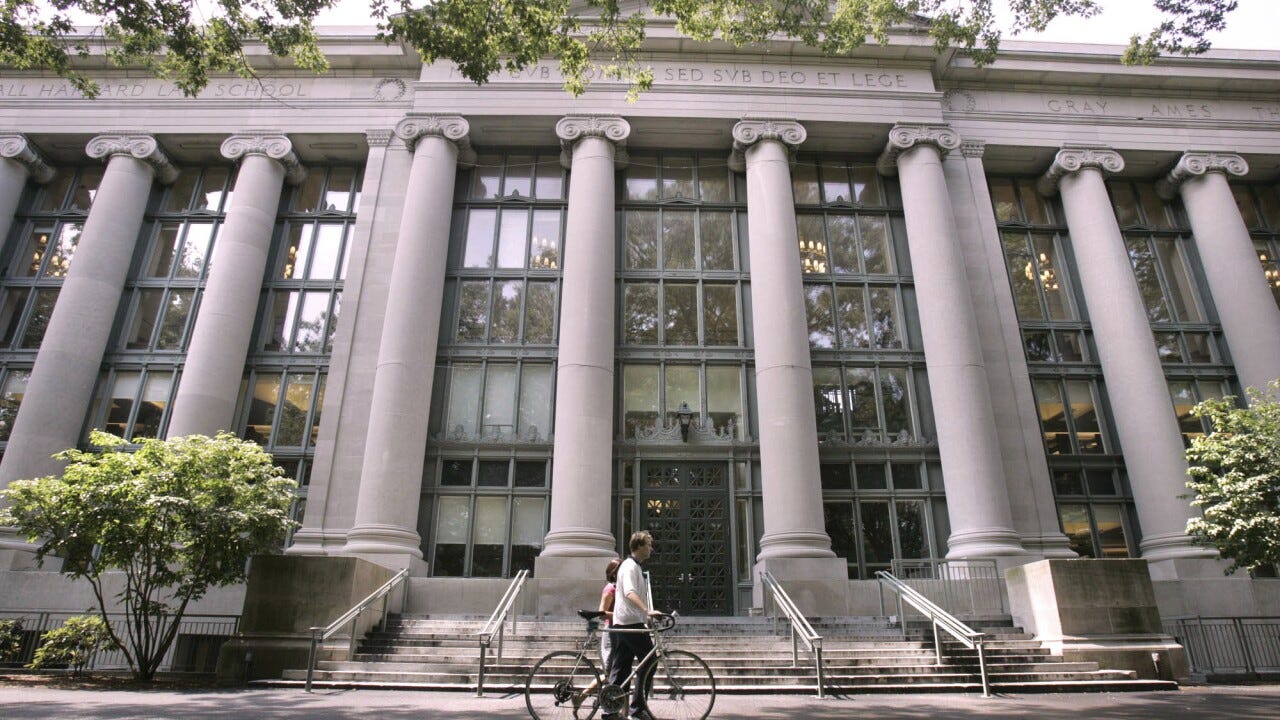Grand jury indicts Harvard scientist Kseniia Petrova on smuggling charges

A federal grand jury in Boston indicted Kseniia Petrova, a Russian-born Harvard scientist, in connection with attempting to smuggle clawed frog embryos and embryonic samples into the United States.
Petrova, 31, was indicted by a federal grand jury on June 25 on one count of concealment of a material fact, one count of false statement, and one count of smuggling goods into the United States, according to the U.S. Attorney's Office for the District of Massachusetts. She was previously only charged with smuggling in May.
U.S. Customs and Border Protection canceled Petrova's visa in February after she failed to declare scientific samples when she returned to Boston from France. CBP agents then turned her over to Immigration and Customs Enforcement with the intent of deporting her back to Russia, where she had fled after protesting Russia's war in Ukraine.
The researcher's attorneys argue that CBP's actions were "arbitrary and capricious" and her detention illegal. Petrova, who was held in custody for nearly four months before her release earlier this month, pleaded not guilty to the smuggling charge and has sued the Trump administration for wrongfully detaining her.
The two new charges come after Petrova's lawyers urged a federal judge last week to dismiss the initial criminal complaint, Reuters reported. Prosecutors secured the indictment after Magistrate Judge Judith Dein ordered Petrova's pre-trial release at a June 12 hearing in Boston.
If convicted of the smuggling charge, Petrova faces up to 20 years in prison and a fine of up to $250,000. She also faces up to five years in prison and a fine of up to $250,000 on the charges of concealment of material fact and false statements.
Why was Kseniia Petrova detained?
On February 16, Petrova arrived at Logan International Airport in Boston on a flight from Paris, according to charging documents. She was then stopped by CBP agents after a law enforcement canine allegedly alerted its handler to her checked duffle bag, which was flagged for inspection.
"Per protocol, the bag was removed from the carousel and brought to an agricultural secondary inspection area for further screening," the U.S. Attorney's Office said in a news release. "There, an officer inspected the contents of the bag and allegedly discovered undeclared biological items, including a foam box containing clawed frog embryos in microcentrifuges, as well as embryonic samples in paraffin well stages and on mounted dyed slides."
Petrova, who works at Harvard Medical School, has said her supervisor asked her to bring back samples of frog embryos from the Institut Curie in Paris for experiments. But prosecutors said the embryos constituted biological material that should have been declared to CBP at the port of first arrival.
Prosecutors alleged that when she was approached by law enforcement, Petrova initially denied carrying any biological material in her checked baggage and later claimed to be unsure she was required to declare the embryos when entering the United States.
Charging documents further alleged that one of Petrova's colleagues had texted her, saying that she was required to declare the biological material and to make sure to get permission to bring the samples back.
In court documents, Petrova's lawyers have argued that since the samples were not alive, she didn't believe they needed to be declared. In the past, a similar violation might have led to a fine, Paste BN previously reported.
International students, researchers targeted in federal immigration crackdown
On May 28, federal district Judge Christina Reiss of Vermont found that Petrova’s detention was unlawful. Reiss had granted her release from ICE custody, but she remained in the custody of the U.S. Marshals Service for the criminal charge.
Petrova is among several international students and researchers ensnared in the Trump administration's widening immigration crackdown. Supporters of Petrova have said that the administration's actions have targeted international students and academics for visa revocations and detention.
Massachusetts Attorney General Andrea Joy Campbell on May 12 filed an affidavit supporting Petrova, saying the administration's high-profile detention of international students threatens the state's economy and the country's global leadership in scientific innovation.
"The Trump administration's actions targeting international students and academics sends a chilling message to talented students and academics around the world," Campell wrote in the affidavit, adding "that they risk detention, deportation and an end to their academic career in the United States at the whims of the federal government."
Contributing: Eduardo Cuevas and Lauren Villagran, Paste BN; Reuters